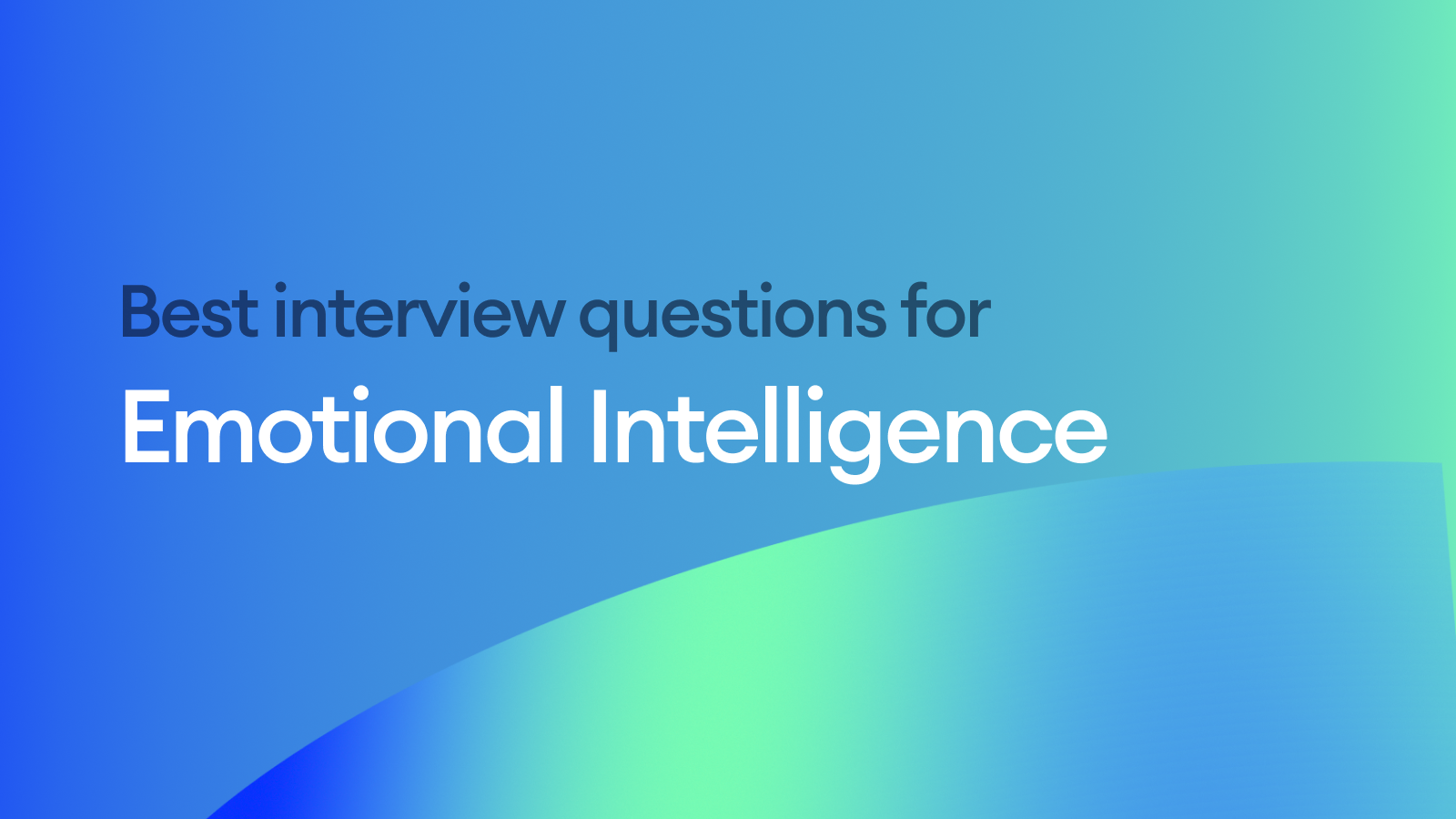Emotional Intelligence (EI) has always been and remains a critical factor that influences an individual's ability to navigate social complexities, lead effectively, and foster a positive workplace culture. Assessing a candidate's emotional intelligence during the interview process can provide invaluable insights into their interpersonal skills, resilience, and overall fit within your organization.
Emotional Intelligence Interview Questions
- Can you describe a time when you had to manage your emotions in a challenging situation at work?
- How do you handle feedback, both positive and negative?
- Tell me about a time when you had to work closely with someone whose personality was very different from yours.
- How do you stay motivated when faced with repetitive or tedious tasks?
- Describe a situation where you had to resolve a conflict within your team.
- How do you recognize and respond to the emotions of others in the workplace?
- Can you provide an example of how you have helped a colleague through a difficult time?
- What strategies do you use to manage stress and maintain your well-being?
- How do you approach setting and achieving personal and professional goals?
- Tell me about a time when you had to adapt to significant changes at work.
What to Look for in Answers
- Self-awareness: Candidates should demonstrate an understanding of their own emotions and how they impact their behavior and work.
- Self-regulation: Look for evidence that the candidate can control their impulses and manage their emotions in stressful situations.
- Empathy: Assess whether the candidate can understand and share the feelings of others, indicating strong interpersonal skills.
- Social Skills: Strong candidates will show the ability to build and maintain healthy relationships, communicate effectively, and work collaboratively.
- Motivation: Candidates should exhibit intrinsic motivation, showing passion and commitment to their work and personal growth.
- Conflict Resolution: Look for examples of how the candidate effectively resolves disagreements and fosters a harmonious work environment.
- Adaptability: Strong emotional intelligence includes the ability to adjust to changing circumstances and embrace new challenges.
- Stress Management: Candidates should provide strategies they use to handle stress and maintain productivity under pressure.
Tips for Evaluating Emotional Intelligence During the Hiring Process
-
Use Behavioral Interview Techniques
Ask candidates to provide specific examples from their past experiences that demonstrate their emotional intelligence. This approach helps you assess how they have applied EI skills in real-world situations. -
Observe Non-Verbal Cues
Pay attention to the candidate’s body language, eye contact, and tone of voice. Non-verbal communication can provide additional insights into their emotional state and interpersonal skills. -
Incorporate Role-Playing Scenarios
Engage candidates in role-playing exercises that simulate workplace challenges. This allows you to observe their emotional responses and problem-solving abilities in action. -
Seek References Focused on EI
When contacting references, ask specific questions about the candidate’s emotional intelligence, such as their ability to work in a team, handle stress, and navigate conflicts. -
Assess Cultural Fit
Ensure that the candidate’s emotional intelligence aligns with your organization's values and culture. A good cultural fit enhances team cohesion and overall workplace harmony. -
Train Interviewers on EI Indicators
Provide training for your hiring team to recognize and evaluate emotional intelligence traits effectively. Consistent understanding among interviewers ensures a fair and comprehensive assessment.
Summary
Emotional Intelligence is a pivotal attribute that significantly impacts workplace dynamics, leadership effectiveness, and overall organizational success. By integrating thoughtfully crafted interview questions and utilizing strategic evaluation techniques, employers can effectively assess a candidate's emotional intelligence. This not only ensures the selection of individuals who are not only technically competent but also adept at fostering a positive and collaborative work environment. Prioritizing emotional intelligence in the hiring process ultimately contributes to building resilient, motivated, and harmonious teams.


